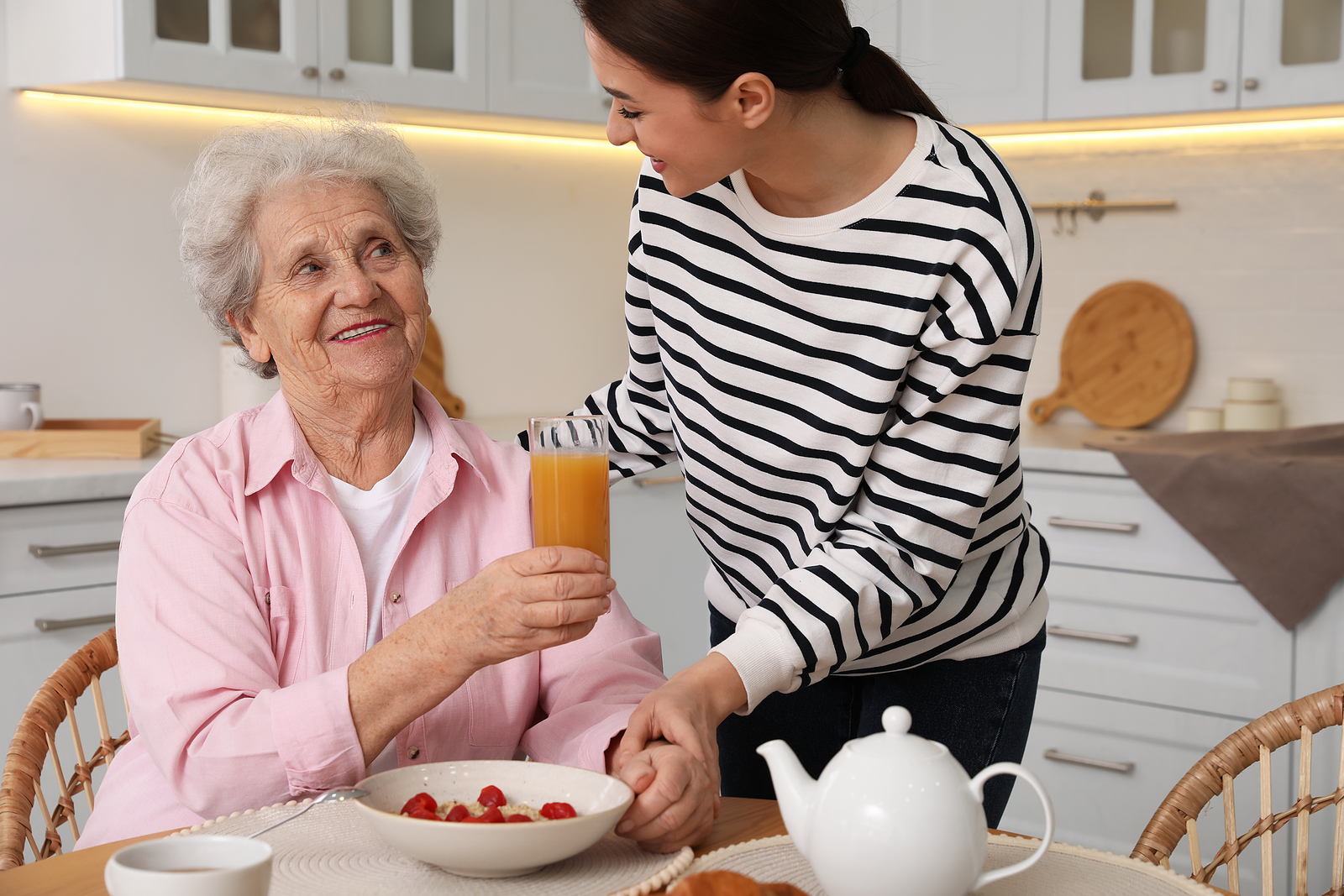Everyone knows that “breakfast is the most important meal of the day,” but it’s especially true for older people. A healthy breakfast gives them a good start to the day and offers many benefits that support their well-being as a whole. If seniors typically struggle with breakfast, the elder care team and loved ones can assist, encouraging them to start the day off right on a consistent basis. Continue reading to learn more about the benefits breakfast brings.
Better Brain Health
For seniors, starting the day with a healthy breakfast can increase their cognitive brain functioning. Whole grains, fruits, and meats make up a well-balanced meal that gives them important nutrients like omega-3 fatty acids, antioxidants, and vitamins B and D. These nutrients are thought to be good for brain health because they help with memory and focus, as well as general brain function.
Energy Boost
As people get older, their natural energy levels tend to drop. But a healthy breakfast can give them the energy they need to start the day. Complex carbohydrates, which are found in fruits and whole grains, give them energy slowly, so they don’t get the rapid energy boosts and drops that come with sugary snacks. This long-lasting energy is important for seniors to keep up a busy lifestyle and do daily tasks. An elder care team can help seniors understand how different foods affect their energy.
Nutrient Absorption
Seniors can get important nutrients that they might not be getting enough of otherwise during breakfast. For example, calcium and vitamin D are important for keeping bones healthy and avoiding osteoporosis. Both of these are common at breakfast time. Additionally, consuming dairy products, foods with added vitamins and minerals, and getting some sun in the morning can all promote better nutrient absorption.
Weight Loss
A healthy breakfast is important for adults who are trying to lose weight. If they skip breakfast, they might eat too much later or pick snacks that aren’t as good for them. A varied breakfast helps control hunger and keep them at a healthy weight by getting their metabolism going early in the morning. This is another area where the elder team can help, offering thoughts for healthy meal planning.
Blood Sugar Control
People over 65 are more likely to get diseases like diabetes. A breakfast that is well-balanced with proteins, healthy fats, and complex carbohydrates can help keep blood sugar levels in check. In turn, this lowers the chance of insulin resistance and improves metabolic health as a whole.
Heart Health
A good breakfast can have a positive effect on heart health, which is very important for seniors. Fiber-rich foods, like whole grains, fruits, and nuts, help keep the heart healthy and lower cholesterol.
In the end, a good breakfast is an important part of being healthy for seniors. Seniors who make eating a healthy breakfast a priority can improve their brain function, get more energy, and more. With the help of the elder care team and loved ones, seniors can enjoy breakfast and get their day started in the right way.
Sources:
https://www.grayingwithgrace.com/importance-of-breakfast-for-elderly/
https://tyemedical.com/blog/healthy-breakfast-ideas-for-seniors-and-why-the-first-meal-matters/
https://elderlyrightsandmentalhealth.org/2018/12/18/the-importance-of-breakfast-in-old-age/
https://www.lifetimedaily.com/health-benefits-of-breakfast/
If you or an aging loved one is considering elder care in Phoenix, AZ, please call the caring staff at Golden Heart Senior Care of Scottsdale at (480) 284-7360. We are here to help!

